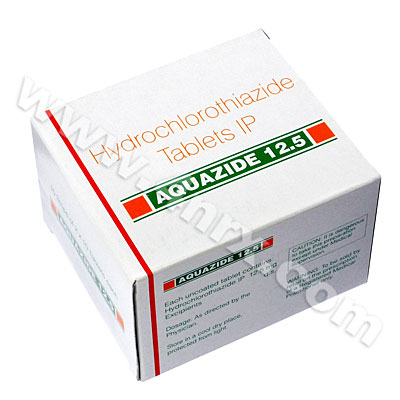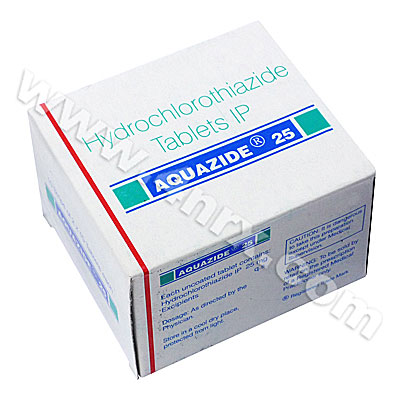 |
Home  General Health General Health  Aquazide (Hydrochlorothiazide) Aquazide (Hydrochlorothiazide) |
|
|||||||||
|
|
Aquazide (Hydrochlorothiazide)
What is Aquazide (Hydrochlorothiazide) used for? Aquazide (Hydrochlorothiazide) is an oral diuretic prescribed to treat patients with edema or hypertension. The medication operates by preventing sodium absorption in the kidneys to draw excess water out of the body so it can be eliminated by urination. This action can reduce swelling and improve circulation in the extremities to lower the amount of work placed on the heart. Your physician may also prescribe it to treat other unlisted conditions. How should I use Aquazide (Hydrochlorothiazide)? Aquazide (Hydrochlorothiazide) should always be used according to your physician's instructions to get the most effective results from treatment. The normal dosage is one tablet taken in the morning, but your directions may differ based on the condition being treated and the severity of your symptoms. It is not recommended to take the medication in the evening to avoid sleep disturbances caused by excess urination. The tablets should be swallowed with a large glass of water and can be taken with or without food, but a meal is suggested if you experience nausea. It is important to drastically increase your water intake during the day to prevent dehydration as this treatment can remove large amounts of water from the body. Do not split, crush, or chew the tablets before use as this may destroy or change the effects of their contents. Ask your physician any questions you have about the medicine to ensure the correct usage. What are the side effects of Aquazide (Hydrochlorothiazide)? Some patients using Aquazide (Hydrochlorothiazide) have reported experiencing side effects such as:
More serious side effects that may occur during treatment include dry mouth, nausea, vomiting, eye pain, severe vision problems, muscle weakness, tingling sensation, irregular heartbeat, severe skin rash, darkened urine, discolored stools, or jaundice. Immediately inform your physician if you experience any of these symptoms or others that are intense or worrying to make sure the correct response is taken to prevent further problems. These may include lowered doses, reduced frequency of administration, or emergency medical attention in serious cases. Please Note Aquazide (Hydrochlorothiazide) should not be used by patients who are pregnant, breastfeeding, children under the age of eighteen, allergic to sulfonamide antibiotics, or if you have high levels of uric acid in the blood, Addison's disease, cholestasis, biliary cirrhosis, anuria, severely decreased kidney function, or severely decreased liver function. Also disclose if you are elderly or if you have diabetes, history of gout, severe heart failure, heart valve disease, asthma, low fluid salt volume, hypertrophic obstructive cardiomyopathy, aortic stenosis, renal artery stenosis, if you have had a recent kidney transplant, decreased kidney function, or moderate liver function. These conditions may cause unexpected problems during treatment requiring alterations to your regimen to prevent them from occurring. Strictly follow all instructions provided to you by your physician or pharmacist while using Aquazide (Hydrochlorothiazide). Optimum and safe dosage can differ based on the patient and the condition being treated. As this medication may be unsafe for certain patients, it is essential you always inform your physician if you are pregnant or breastfeeding, as well as if you have any allergies, other illnesses, or ongoing health conditions, and if you are taking any other form of medication, supplements, or herbal products. Immediately seek emergency medical care if you have an allergic or hypersensitive reaction. Common signs of a reaction include hives, swelling, skin rashes, chest pains, as well as trouble breathing or swallowing. 

|
||||||||||||||||||||||